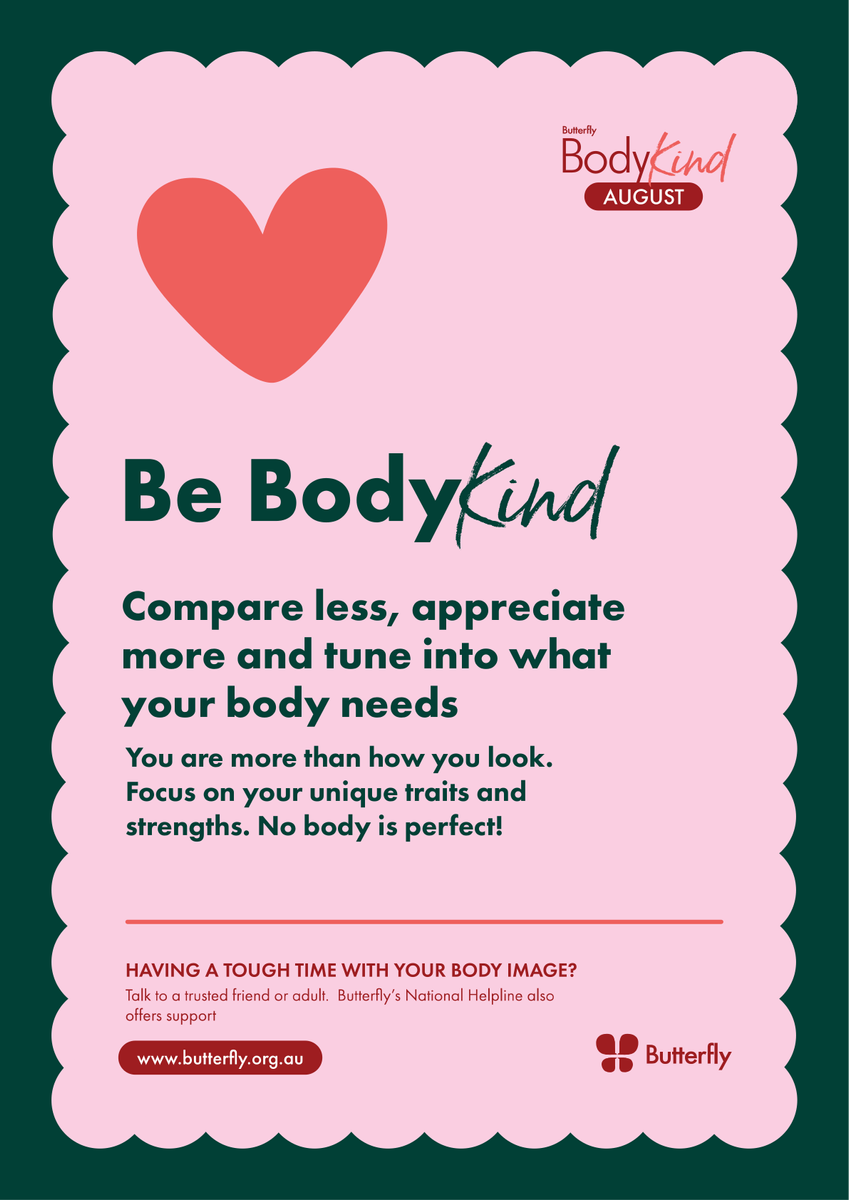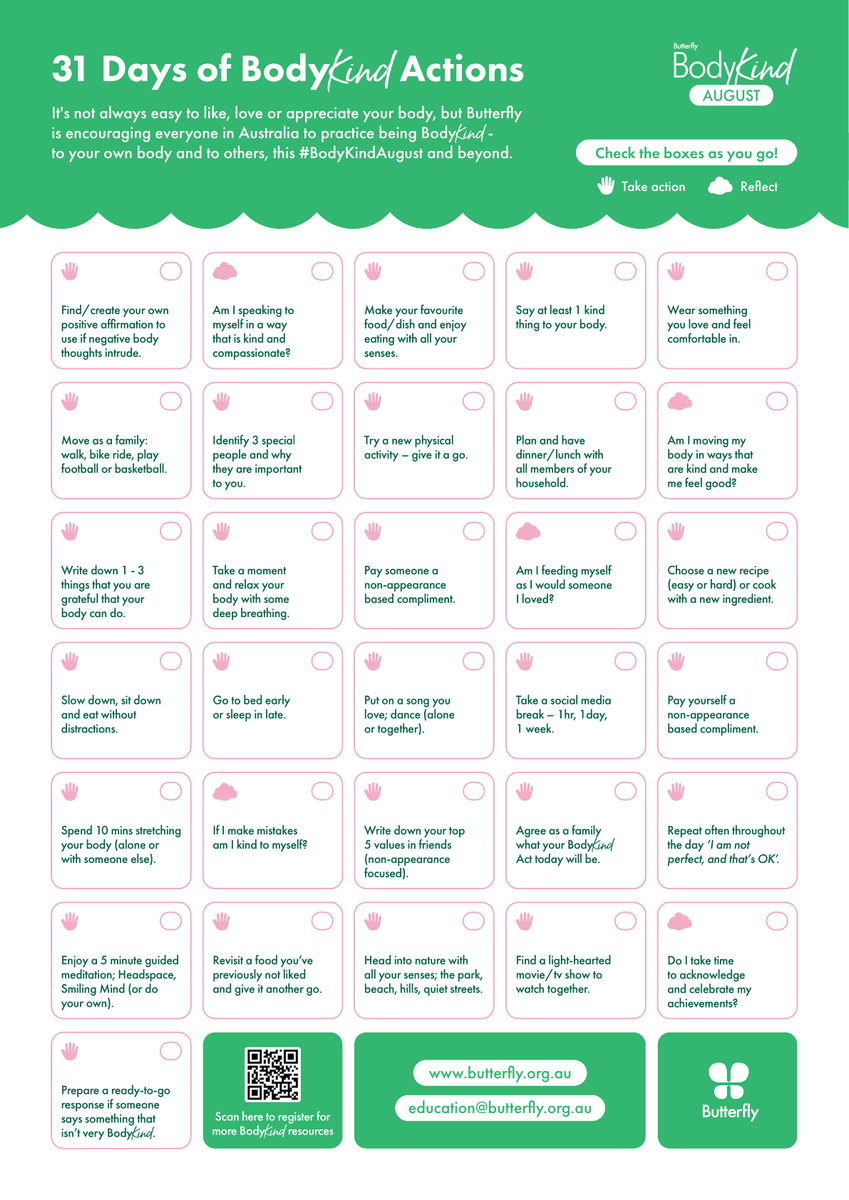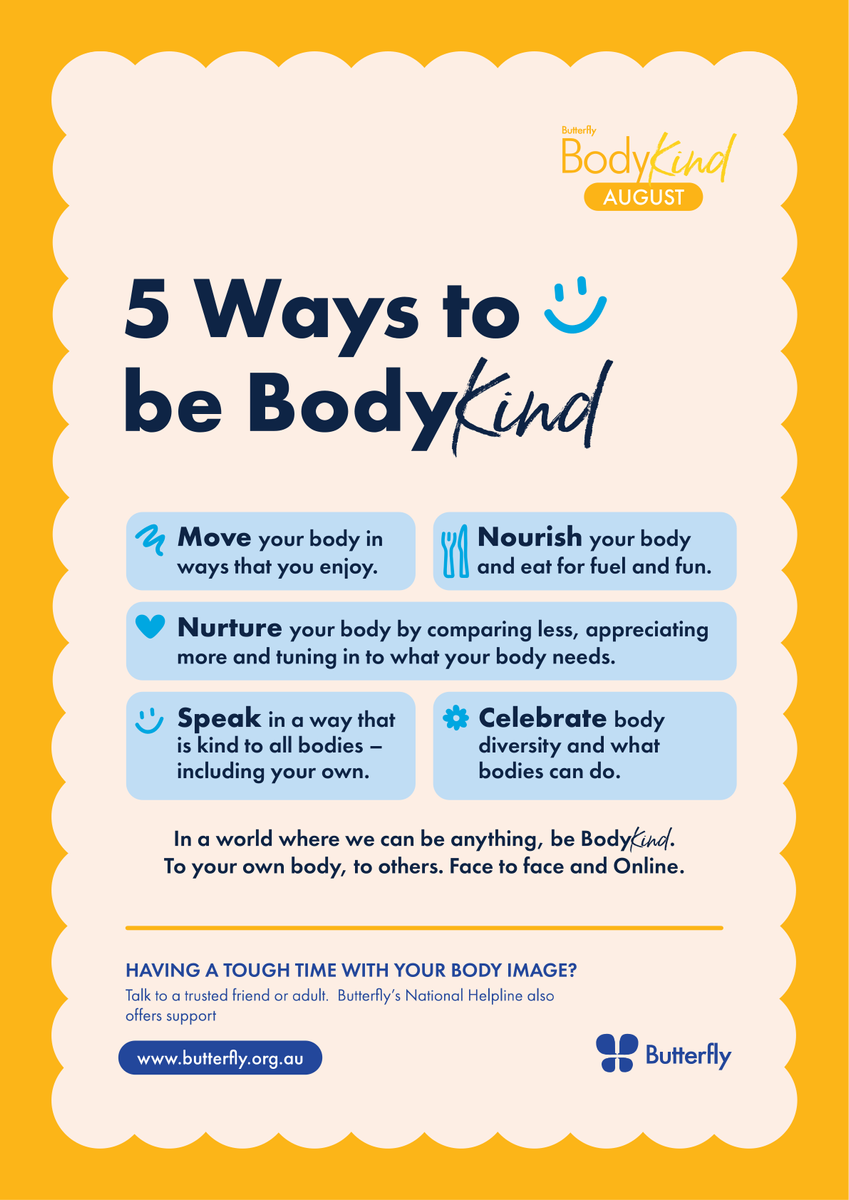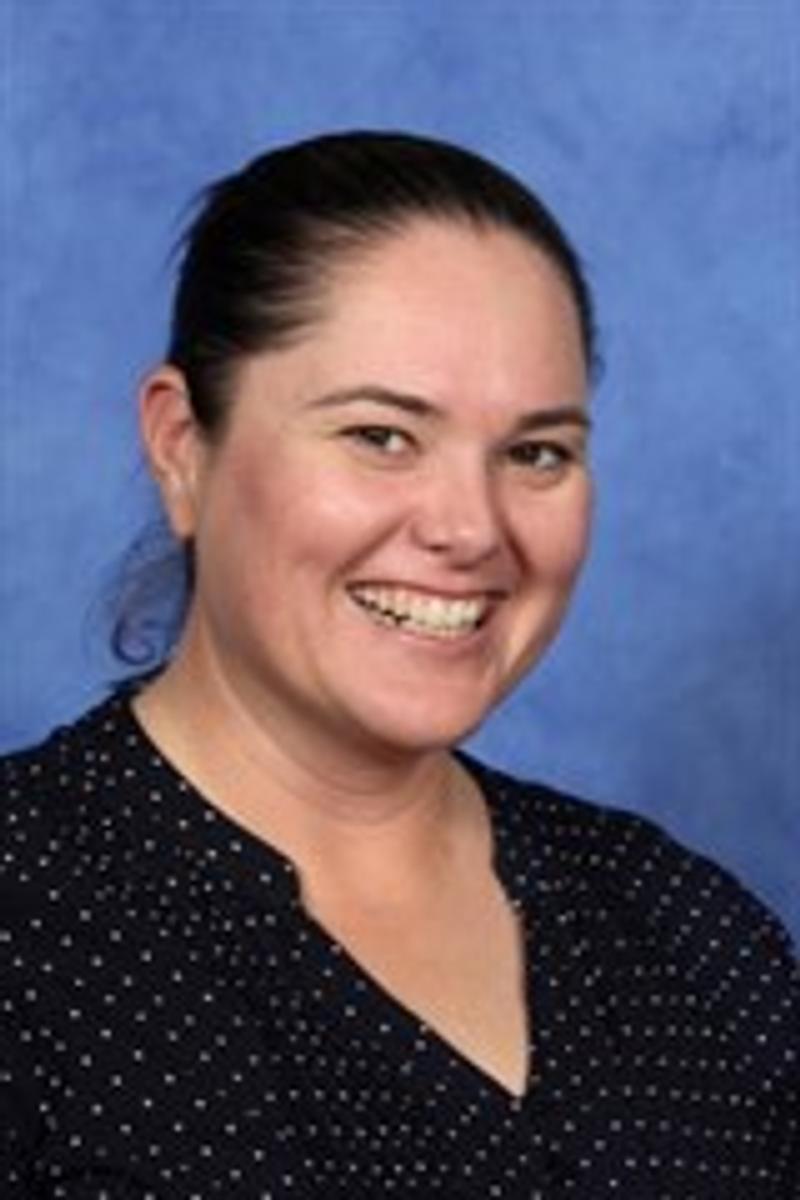Wellbeing

Beginning Of Term 3:
Wellbeing Report
BodyKind August
We are proud to be supporting our students’ body image by participating in BodyKind August, a Butterfly Foundation annual awareness initiative. BodyKind encourages everyone to be kind to their own body and others; kind in the way they move, nourish and nurture their body and kind in the language used online and face to face.
Body image is how one thinks and feels about their body, and what one imagines their body looks like. This may have nothing to do with their actual appearance. A positive body image is associated with better self-esteem, self-acceptance and healthy lifestyle behaviours, resulting in better physical, psychological and social health.
Parents and carers can encourage positive body image and strong self-esteem in their children.
· You are the most influential role model in your child’s life, so lead by example:
Be aware of the effects of negative body talk around your child, about your own body and bodies of other people.
Try to avoid labelling foods as ‘good’ or ‘bad’. Instead, focus on the nourishment and encourage flexibility in eating patterns.
Avoid dieting and do not encourage your child to diet either.
Be critical of media messages and images.
· Get your child into the physical activity habit:
Emphasise fitness, health, social interaction and enjoyment as the motivations for exercise, rather than weight loss or weight management.
Try to find a team sport your child enjoys.
Make informed decisions about sports that have a strong emphasis on a particular body size or shape.
· Help your child to feel confident about themselves:
Teach your child various healthy coping strategies to help them deal with life’s challenges.
Listen to their concerns about body shape and appearance. Puberty can be a worrying time. Reassure your child that their physical changes are normal.
Place value on personal qualities, talents, skills and interests.
· If you are concerned about your child’s body image, self-esteem or eating behaviours, consult with your doctor (GP) for information and support options.
Where to get support
· Your GP (family doctor)
· Student Wellbeing Team · Butterfly Foundation https://butterfly.org.au/
· Eating Disorders Victoria 1300 550 236 Adapted from Body image – tips for parents | Better Health Channel, Jul 2025
Penny Hsiao, Health Promotion Nurse
Penny Hsiao
Health Promotion Nurse
Important Update on New Social Media Laws
Dear Parents and Carers,
I’m writing to update you on an important change to Australian law that will directly impact our young people’s use of social media. From 10 December 2025, it will be illegal for anyone under the age of 16 to have an account on most major social media platforms, including TikTok, Instagram, Facebook, Snapchat, X (formerly Twitter), and now YouTube.
This new legislation is designed to keep children safe online and protect their mental health. Research has shown that early access to social media can expose children to cyberbullying, harmful content, unrealistic social pressures, and privacy risks. The change also shifts the responsibility onto the social media companies to ensure proper age verification—meaning families will not be fined if a child is found to have an account. Instead, platforms face significant penalties if they fail to comply.
Why These Laws Have Been Introduced
- Protecting Young Minds – Limiting exposure to harmful or inappropriate content.
- Reducing Cyberbullying – Helping to safeguard students from online harassment.
- Encouraging Healthy Development – Supporting children to develop strong social and emotional skills in real-world interactions before entering online spaces.
- Holding Platforms Accountable – Ensuring tech companies take genuine responsibility for protecting minors.
Advice for Parents and Carers
- Have regular conversations about online safety and respectful digital behaviour.
- Encourage safer alternatives for communication, such as messaging services or platforms designed for younger users (e.g., YouTube Kids, Google Classroom).
- Set up parental controls and review privacy settings on devices and apps.
- Model healthy technology habits at home—what our young people see us do matters.
Where to Get Help if Things Go Wrong Online
- eSafety Commissioner – Free, confidential help for online abuse or safety concerns: www.esafety.gov.au
- Headspace – Support for mental health and wellbeing: www.headspace.org.au
- Youth Law Australia – Legal information and advice: www.yla.org.au
Our Role as a School
At South Oakleigh College, the safety and wellbeing of our students remains our top priority. We will:
- Continue to teach digital safety and respectful online behaviour through our wellbeing programs.
- Provide support for students impacted by online issues.
- Work in partnership with families to ensure students are using technology in safe and positive ways.
This change in the law is a reminder that keeping our young people safe online is a shared responsibility between schools, families, and the wider community. If you would like more information or need support in managing your child’s online activity, please don’t hesitate to contact the Wellbeing Team.
South Oakleigh College Wellbeing Team
Warm regards,
Elizabeth Smith
Director of Student Wellbeing





